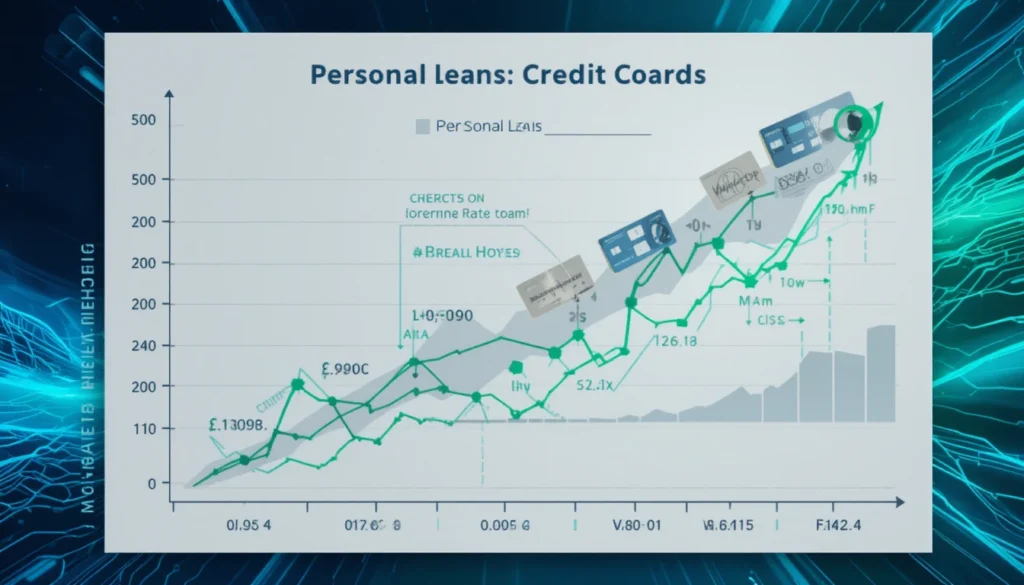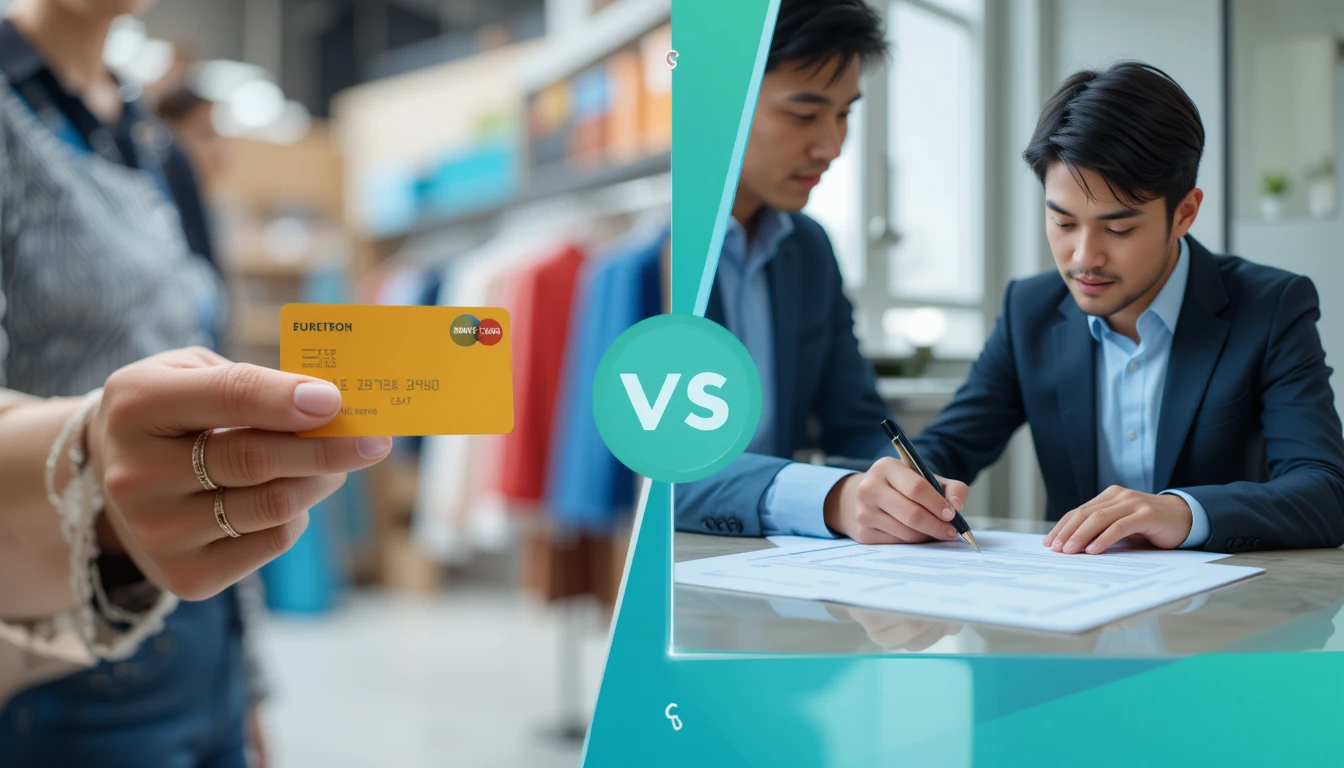Managing finances wisely is essential for a secure future. When you need extra funds, two common options are personal loans and credit cards. But which one is better for you? Understanding the differences between these two can help you make an informed decision.
What is a Personal Loan?
A personal loan is a fixed amount of money that you borrow from a bank, credit union, or online lender. You repay it in fixed monthly installments over a set period, usually ranging from one to five years. Personal loans can be secured (backed by collateral) or unsecured (not backed by collateral).
Advantages of Personal Loans
- Fixed Interest Rates – Most personal loans come with fixed interest rates, so your payments remain the same throughout the loan term.
- Larger Loan Amounts – You can borrow a higher amount compared to credit cards, making it ideal for big expenses.
- Lower Interest Rates – Compared to credit cards, personal loans often have lower interest rates, especially if you have good credit.
- Structured Repayment Plan – Since you have a fixed payment schedule, it helps with budgeting and financial planning.
Disadvantages of Personal Loans
- Requires a Good Credit Score – A higher credit score is usually needed to get the best interest rates.
- Processing Time – Unlike credit cards, getting a personal loan takes time, as lenders review your financial history.
- Early Repayment Fees – Some lenders charge a penalty if you pay off your loan early.
What is a Credit Card?
A credit card is a revolving line of credit that allows you to borrow money up to a certain limit. You can use it for everyday purchases and repay the borrowed amount in full each month or make minimum payments while carrying a balance.
Advantages of Credit Cards
- Instant Access to Funds – Unlike personal loans, you do not need to apply for a new loan every time you need money.
- Rewards and Benefits – Many credit cards offer cashback, travel points, and other rewards for spending.
- Flexible Payments – You have the option to pay in full or make minimum payments, depending on your financial situation.
- Improves Credit Score – Regular use and timely payments can boost your credit score.
Disadvantages of Credit Cards
- High-Interest Rates – If you do not pay the full balance, interest charges can accumulate quickly.
- Debt Trap Risk – Easy access to credit can lead to overspending and debt problems.
- Variable Interest Rates – Unlike personal loans, credit card interest rates can change, making it harder to plan payments.
Personal Loans vs. Credit Cards: Which One Should You Choose?
The best choice depends on your financial needs and spending habits. Let’s compare them based on different factors.

1. Interest Rates
- Personal loans usually have lower interest rates, making them a better option for long-term borrowing.
- Credit cards often come with high-interest rates if you carry a balance.
Winner: Personal loans
2. Loan Amount
- Personal loans allow you to borrow a lump sum, usually larger than a credit card limit.
- Credit cards have a set limit, which may not be enough for large expenses.
Winner: Personal loans
3. Repayment Flexibility
- Personal loans have fixed monthly payments, making budgeting easier.
- Credit cards offer flexible payments, but carrying a balance can be costly.
Winner: Credit cards (for flexibility), Personal loans (for structured repayment)
4. Best for Emergencies
- Credit cards provide instant access to funds, making them more convenient for emergencies.
- Personal loans take time for approval and disbursement.
Winner: Credit cards
5. Best for Large Expenses
- Personal loans are better suited for big expenses like medical bills, home renovations, or debt consolidation.
- Credit cards are ideal for smaller, everyday purchases and rewards.
Winner: Personal loans
When to Choose a Personal Loan
You should consider a personal loan if:
- You need a large amount of money for a major purchase.
- You want lower interest rates and fixed payments.
- You prefer a structured repayment plan.
When to Choose a Credit Card
A credit card is a better choice if:
- You need quick access to credit for short-term expenses.
- You can pay off your balance in full every month to avoid high interest.
- You want to earn rewards and cashback on purchases.
Conclusion
Both personal loans and credit cards have their benefits and drawbacks. The right choice depends on how much money you need, how quickly you can repay it, and your spending habits. If you need a large loan with lower interest, a personal loan is the better option. If you want convenience and rewards, a credit card is more suitable. Always compare interest rates, fees, and repayment terms before making a decision.
By understanding the key differences, you can choose the best financial tool for your needs and avoid unnecessary debt.
